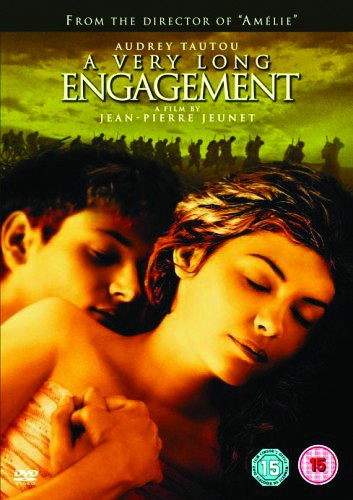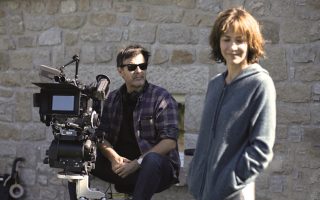Top 5 French Films: The Best of Brittany

THE SANDS OF TIME
Conte d’été (1996), A Summer’s Tale, Éric Rohmer
New Wave genius and former Cahiers du Cinéma editor Éric Rohmer was in his mid-70s by the time he rocked up on his beloved beaches of Brittany to film this, the third in his ‘Tales of the Four Seasons’ quadrilogy. Dinard, Saint-Malo and their sun-kissed seaside environs are perfect locations for this tale of a young mathematician, handsome Gaspard (Melvil Poupaud), who spends his time writing music, juggling three attractive girlfriends (including one played by Amanda Langlet, who Rohmer fans will know as the titular Pauline à la Plage in 1983) and generally being a bit pompous.
Brittany’s beaches and cafés in the high summer play a part in allowing the romantic leads to loosen their tongues as they enjoy long walks together, during which their over-dramatically expressed youthful aspirations and relationship expectations float away on the ocean breezes.
As with many of Rohmer’s masterpieces, so little seems to be said or done – before the crafty closer you will find few dramatic incidents but there are some telling directorial cuts – but when the credits roll it feels like all of human nature has been laid bare and the foibles of young love writ-large. This marvellously languid film was only fully released in the US in 2014.
GREAT WAR, GREAT FILM
Un Long Dimanche de Fiançailles (2004), A Very Long Engagement, J-P Jeunet
We know full well from his previous film, Amélie – which also starred Audrey Tautou – that Jean-Pierre Jeunet is a masterful storyteller and a dab hand with ingenious visual trickery. However, this World War 1 tale of lost love, revenge and barbarity is far more hard-hitting.
Tautou plays Mathilde, a woman whose bout of polio left her with a limp, and she receives a clue that her boyfriend may not have been sent ‘over the top’ as punishment for self-injury – a fate said to have been implemented by General Pétain. Her home region of Brittany is gloriously portrayed: lighthouses, stunning coastlines and golden-hued countryside, but only so that they might contrast dramatically with a washed-out palate of the trench warfare scenes. As her detective work takes her nearer to the truth, Jeunet brings us the very definition of happy-sad. A splendid film.
ISLAND LIFE
Mon Oncle d’Amerique (1980), My American Uncle, Alain Resnais
The idea of an island environment – the Gulf of Morbihan, where Resnais sailed as a boy – as bringer of isolation is used symbolically in this treatise on human behaviour from the acclaimed director of Hiroshima Mon Amour (1959) and Last Year in Marienbad (1961).
The thoughts of a behavioural scientist frame the unfolding tales of three characters as they try to make sense of their lives and loves, habits and behavioural traits. It sounds very intellectual, but this is an accessible comedy of manners which gave Resnais his first major commercial success and an Oscar nomination for Best Screenplay.
CHOPPY WATERS
Remorques (1941), Stormy Waters, Jean Grémillon
This salty old tale of bravery and marital infidelity was co-written by Jacques Prévert, whose work on such screenplays as Les Enfants du Paradis would go on to define the ‘poetic realist’ style. Dreamlike cinematic touches belie the altogether tougher life depicted: our hero, played by iconic vedette Jean Gabin, is the steely skipper of a rescue tugboat whose dangerous work puts pressure on his marriage. He then falls for a woman he rescues from a sinking ship.
An interesting historical point: although filming began pre-war, in 1939, and the Brest coastline plays backdrop to the action sequences and melodrama, by 1941 when the film was released, the Atlantic Coast featured was a military zone. And so no leisure or commercial tugboats would have been in operation…
SECRETS AND LIES
Au Coeur du Mensonge (1999), The Colour of Lies, Claude Chabrol
Chabrol made half a dozen films in Brittany, none of which depicted the region’s traditions and ‘otherness’ quite like his 1980 peasant drama The Horse of Pride. However, for 1995’s La Cérémonie (which featured Isabelle Huppert) and this psychological drama starring Valeria Bruni-Tedeschi, the Breton countryside and coast are presented as hotbeds for sinister small-town secrets and evil. Bruni-Tedeschi plays a police inspector who’s on the hunt for a young girl’s killer.
One of the director’s favourite subjects is the gulf between what the bourgeoisie thinks and says. In this case, it’s the community’s gossiping and presumptions when the prime suspect is a local artist and art teacher (Jacques Gamblin ) who was the last person to see the girl – one of his pupils – alive. This is a sharp and gripping drama with much fine acting.
Two more to watch:
Western (1997), Manuel Poirier
Cornouaille (2011), Anne Le Ny
From France Today magazine
Share to: Facebook Twitter LinkedIn Email
Leave a reply
Your email address will not be published. Required fields are marked *



